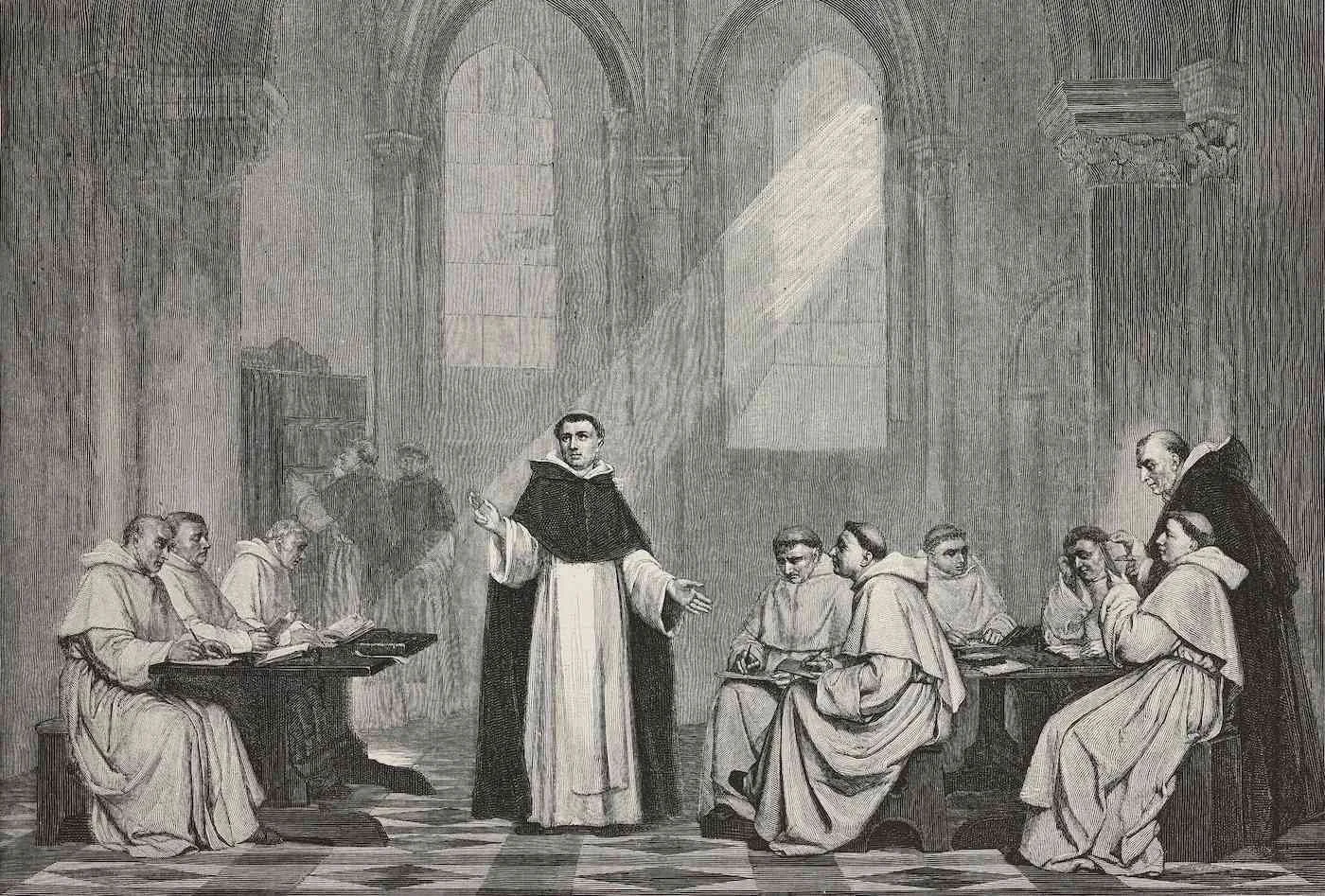by Brandon D. Smith
When we consider the incarnation—that God the Son took on flesh and dwelt among us—we should be floored at the thought. How could God become a creature? Can such a great chasm between a perfect God and finite, fallen humanity be crossed?
The tertia pars (“third part”) of Thomas Aquinas’s towering Summa Theologiae offers some help. Though the tertia pars is an expansive Christological portion of the Summa, I want to briefly zoom in on the most pertinent treatment of this question, which happens to be the very first question Thomas addresses: is the incarnation fitting? Here are two reasons (of many) that Thomas gives for why God became man and why it matters.
1. For God to Communicate His Goodness to Us
Thomas opens the tertia pars in q. 1, a. 1 addressing perhaps this most obvious objection: how could an infinite and utterly transcendent God become a creature? Thomas answers this question by discussing not what is required of God, but rather what is decuit (“fitting”; “proper”; “suitable”). He will ultimately determine what is “fitting” by leaning on Scripture’s claims and insights from the Christian tradition.
Thomas characteristically begins by addressing objections to the idea that the incarnation would be fitting at all. For example, objection 2: God becoming incarnate would be as unfitting as the head of a man being joined to the neck of a horse. In fact, one could argue that God joining himself to a creaturely nature seems even more insane than that. Again, God and man are infinitely apart; the chasm between the greatness of God and the lowliness of creation is seemingly too wide to cross.
Thomas responds to this objection by saying that God’s supreme goodness must be communicated to creatures, for “it belongs to the essence of the highest good to communicate itself in the highest manner to the creature.” God could have done this in a variety of ways, but this communication of God’s goodness could happen most fittingly by God joining a created nature to himself. That union of divine and human would demonstrate that the communication of divine goodness had occurred, and that goodness could be transferred to or bestowed upon the human nature most fittingly if united to it. Of course it might seem unfitting for a human nature to be joined to a divine person; however, for mankind to know the goodness and love of the infinite God—and ultimately for mankind to be saved—God became man.
2. For God to Fully and Truly Restore Mankind
Now, if we grant Thomas this solidarity argument—that it would be fitting for the supremely good God to communicate his goodness to us via incarnation—we are still left with another objection: that God’s immutability or even his goodness could be compromised if he assumed a human nature.
Thomas responds to this objection by asserting that the uncreated, immutable, and incorporeal God created mutable and corporeal creatures according to his own wisdom and goodness. And even though these creatures were now subject to God’s justice because they committed evil “by withdrawing from the art of the divine wisdom and from the order of the divine goodness,” God could nonetheless join himself to human nature. Why? Drawing on Augustine, Thomas reasons that God could become incarnate without assuming humanity’s evil because, “God is great not in mass, but in might. Hence the greatness of his might feels no straits in narrow surroundings.”
In short, the infinite and transcendent God who created mankind is certainly not bound by the limitations of mankind—whether morally or spatially or otherwise. The human nature does not affect the divine nature so as to ruin it; rather, the divine nature affects the human nature so as to restore it. This is a driving force behind the incarnation, that the divine would sanctify the creaturely. As Thomas says elsewhere in his Compendium, since man was made for perfect beatitude, “Surely the divine goodness would hardly allow this capacity to remain forever unrealized; but this would have been so had God not provided a remedy devised for man’s restoration.”[1]
In short, the Son takes on human flesh without any alteration in his divinity. The divine nature remains what it was because it is not changed into or somehow blended with the human nature. Human nature, even fallen, is not “great in mass” so as to affect the perfect divine nature. Christ is fully God and fully man, as the Chalcedonian Definition says, “unconfusedly, unchangeably, indivisibly, inseparably.” In this union, the divine nature sanctifies the human nature, setting a pattern for those of us who are redeemed and restored by his grace. Since we cannot save or restore ourselves, God must do it.
Was the Incarnation Fitting?
So, was it fitting for God to become incarnate? Thomas answers this question with a resounding yes. In the incarnation, God does not compromise his immutability, his supreme goodness, or the transcendence and ineffability of his divine nature. Instead, God’s solidarity with mankind via the incarnation is the most fitting way for God to communicate his own supreme goodness to his creatures. Moreover, God becoming man raises humanity beyond its own capacity for goodness, and restores and enables its participation in perfect divine beatitude.[2]
Both Scripture and the church fathers who preceded Thomas agree: in the incarnation, God became like us so we could become like him.
___
[1] Compendium theologiae 199.
[2] Compendium theologiae 199: “divine goodness exceeds the creature’s capacity for good.”


